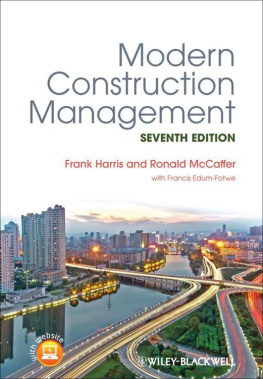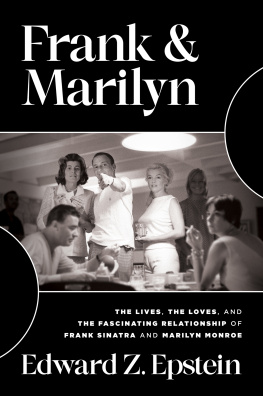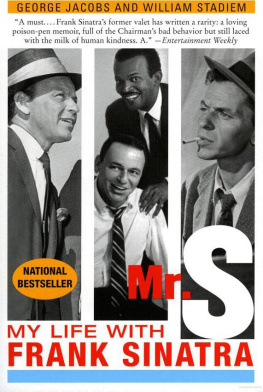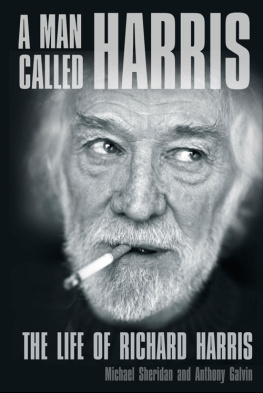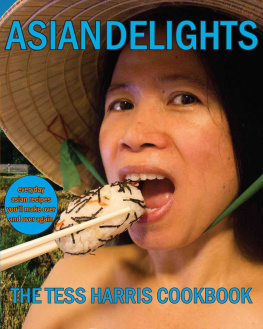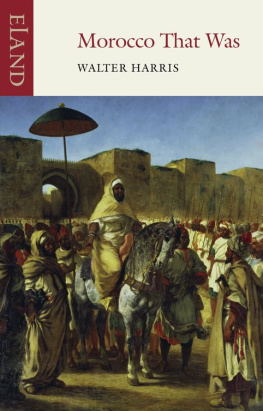Frank Harris - My Life and Loves, Book 1
Here you can read online Frank Harris - My Life and Loves, Book 1 full text of the book (entire story) in english for free. Download pdf and epub, get meaning, cover and reviews about this ebook. genre: Romance novel. Description of the work, (preface) as well as reviews are available. Best literature library LitArk.com created for fans of good reading and offers a wide selection of genres:
Romance novel
Science fiction
Adventure
Detective
Science
History
Home and family
Prose
Art
Politics
Computer
Non-fiction
Religion
Business
Children
Humor
Choose a favorite category and find really read worthwhile books. Enjoy immersion in the world of imagination, feel the emotions of the characters or learn something new for yourself, make an fascinating discovery.

- Book:My Life and Loves, Book 1
- Author:
- Genre:
- Rating:3 / 5
- Favourites:Add to favourites
- Your mark:
- 60
- 1
- 2
- 3
- 4
- 5
My Life and Loves, Book 1: summary, description and annotation
We offer to read an annotation, description, summary or preface (depends on what the author of the book "My Life and Loves, Book 1" wrote himself). If you haven't found the necessary information about the book — write in the comments, we will try to find it.
My Life and Loves, Book 1 — read online for free the complete book (whole text) full work
Below is the text of the book, divided by pages. System saving the place of the last page read, allows you to conveniently read the book "My Life and Loves, Book 1" online for free, without having to search again every time where you left off. Put a bookmark, and you can go to the page where you finished reading at any time.
Font size:
Interval:
Bookmark:
Frank Harris
My Life and Loves, Book 1
To the Story of My Life and Loves
Go, soul, the body's guest,
Upon a thankless errand:
Fear not to touch the best,
The Truth shall be thy warrant. Sir Walter Raleigh HERE IN the blazing heat of an American August, amid the hurry and scurry of New York, I sit down to write my final declaration of Faith, as a preface or foreword to the story of my life. Ultimately it will be read in the spirit in which it has been written and I ask no better fortune. My journalism during the war and after the armistice brought me prosecutions from the federal government. The authorities at Washington accused me of sedition, and though the third postmaster general, ex-Governor Dockery, of Missouri who was chosen by the department as judge, proclaimed my innocence and assured me I should not be prosecuted again, my magazine (Pearson's) was time and again held up in the post, and its circulation reduced thereby to one-third. I was brought to ruin by the illegal persecution of President Wilson and his arch-assistant Burleson, and was laughed at when I asked for compensation. The American government, it appears, is too poor to pay for its dishonorable blunders.
I record the shameful fact for the benefit of those Rebels and Lovers of the Ideal who will surely find themselves in a similar plight in future emergencies. For myself I do not complain. On the whole I have received better treatment in life than the average man and more loving-kindness than I perhaps deserved. I make no complaint.
If America had not reduced me to penury I should probably not have written this book as boldly as the ideal demanded. At the last push of Fate (I am much nearer seventy than sixty) we are all apt to sacrifice something of Truth for the sake of kindly recognition by our fellows and a peaceful ending. Being that wicked animal, as the French say, who defends himself when he is attacked, I turn at length to bay, without any malice, I hope, but also without any fear such as might prompt compromise. I have always fought for the Holy Spirit of Truth and have been, as Heine said he was, a brave soldier in the Liberation War of Humanity: now one fight more, the best and the last.
There are two main traditions of English writing: the one of perfect liberty, that of Chaucer and Shakespeare, completely outspoken, with a certain liking for lascivious details and witty smut, a man's speech; the other emasculated more and more by Puritanism and since the French Revolution, gelded to tamest propriety; for that upheaval brought the illiterate middle-class to power and insured the domination of girl readers. Under Victoria, English prose literally became half childish, as in stories of Little Mary, or at best provincial, as anyone may see who cares to compare the influence of Dickens, Thackeray and Reade in the world with the influence of Balzac, Flaubert and Zola.
Foreign masterpieces such as Les Contes Drolatiques and L'Assommoir were destroyed in London as obscene by a magistrate's order; even the Bible and Shakespeare were expurgated and all books dolled up to the prim decorum of the English Sunday-school. And America with unbecoming humility worsened the disgraceful, brainless example.
All my life I have rebelled against this old maid's canon of deportment, and my revolt has grown stronger with advancing years.
In the foreword to The Man Shakespeare, I tried to show how the Puritanism that had gone out of our morals had gone into the language, enfeebling English thought and impoverishing English speech.
At long last I am going back to the old English tradition. I am determined to tell the truth about my pilgrimage through this world, the whole truth and nothing but the truth, about myself and others, and I shall try to be at least as kindly to others as to myself.
Bernard Shaw assures me that no one is good enough or bad enough to tell the naked truth about himself, but I am beyond good and evil in this respect.
French literature is there to give the cue and inspiration; it is the freest of all in discussing matters of sex and chiefly by reason of its constant preoccupation with all that pertains to passion and desire, it has become the world literature to men of all races.
Women and love, Edmond de Goncourt writes in his journal,
always constitute the subject of conversation wherever there is a meeting of intellectual people socially brought together by eating and drinking. Our talk at dinner was at first smutty (polisonne) and Tourgueneff listened to us with the open-mouthed wonder (l'etonnement un peu meduse) of a barbarian who only makes love (fait l'amour) very naturally (tres naturellement).
Whoever reads this passage carefully will understand the freedom I intend to use. But I shall not be tied down even to French conventions. Just as in painting, our knowledge of what the Chinese and Japanese have done, has altered our whole conception of the art, so the Hindoos and Burmese too have extended our understanding of the art of love. I remember going with Rodin through the British Museum and being surprised at the time he spent over the little idols and figures of the South Sea Islanders: Some of them are trivial, he said, but look at that, and that, and that-sheer masterpieces that anyone might be proud of-lovely things!
Art has become coextensive with humanity, and some of my experiences with so-called savages may be of interest even to the most cultured Europeans.
I intend to tell what life has taught me, and if I begin at the A.B.C. of love, it is because I was brought up in Britain and the United States; I shall not stop there.
Of course I know the publication of such a book will at once justify the worst that my enemies have said about me. For forty years now I have championed nearly all the unpopular causes, and have thus made many enemies; now they will all be able to gratify their malice while taking credit for prevision. In itself the book is sure to disgust the unco guid and the mediocrities of every kind who have always been unfriendly to me. I have no doubt, too, that many sincere lovers of literature who would be willing to accept such license as ordinary French writers use will condemn me for going beyond this limit. Yet there are many reasons why I should use perfect freedom in this last book.
First of all, I made hideous blunders early in life, and saw worse blunders made by other youths, out of sheer ignorance; I want to warn the young and impressionable against the shoals and hidden reefs of life's ocean and chart, so to speak, at the very beginning of the voyage when the danger is greatest, the unpath'd waters.
On the other hand I have missed indescribable pleasures because the power to enjoy and to give delight is keenest early in life, while the understanding of both how to give and how to receive pleasure comes much later, when the faculties are already on the decline.
I used to illustrate the absurdity of our present system of educating the young by a quaint simile. When training me to shoot, I said, my earthly father gave me a little single-barreled gun, and when he saw that I had learned the mechanism and could be trusted, he gave me a double-barreled shotgun. After some years I came into possession of a magazine gun which could shoot half a dozen times if necessary without reloading, my efficiency increasing with my knowledge.
My Creator, or Heavenly Father, on the other hand, when I was wholly without experience and had only just entered my teens, gave me, so to speak, a magazine gun of sex, and hardly had I learned its use and enjoyment when he took it away from me forever, and gave me in its place a double-barreled gun: after a few years, he took that away and gave me a single-barreled gun with which I was forced to content myself for the best part of my life.
Font size:
Interval:
Bookmark:
Similar books «My Life and Loves, Book 1»
Look at similar books to My Life and Loves, Book 1. We have selected literature similar in name and meaning in the hope of providing readers with more options to find new, interesting, not yet read works.
Discussion, reviews of the book My Life and Loves, Book 1 and just readers' own opinions. Leave your comments, write what you think about the work, its meaning or the main characters. Specify what exactly you liked and what you didn't like, and why you think so.

